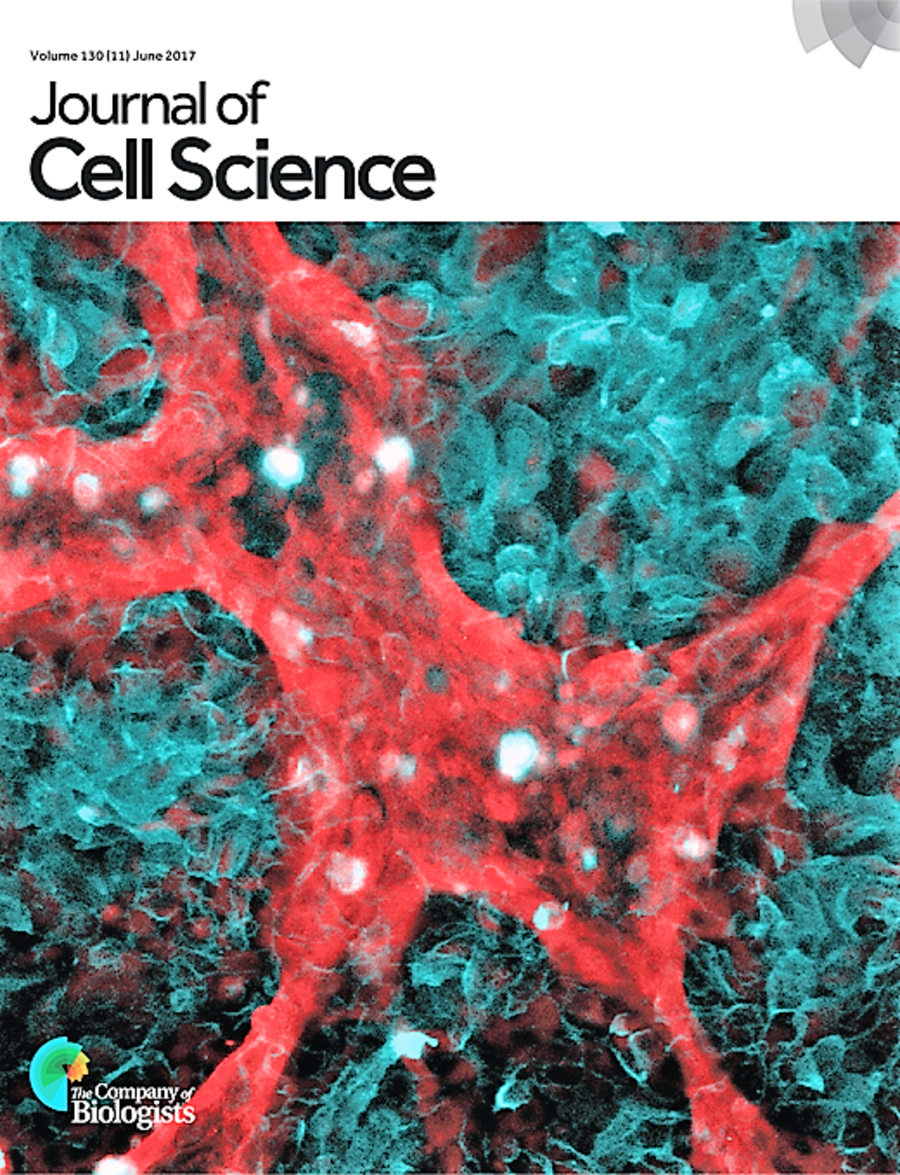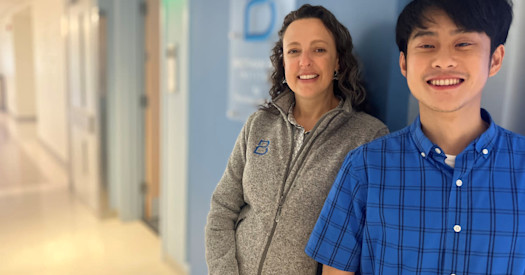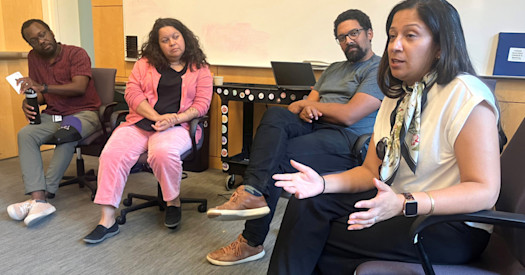Fred Hutch Post-doc fellow Sander Frank (left) consults on prostate cancer research with Dr. Peter Nelson
‘Thoughtful, inquisitive and persistent, all traits that are key in a scientific career’
For some researchers, their work is a challenging and rewarding opportunity. For Sander Frank, it is a calling.
Frank, a post-doctorate fellow at the Fred Hutchinson Cancer Center, lost his mother to breast cancer. She was 45 years old; he was 10 and the oldest of three children.
Twenty-five years and 12 peer-reviewed papers later, Frank, 35, is working alongside two principal investigators, Drs. Peter Nelson and Valeri Vasioukhin, studying the roles of DNA repair defects in prostate cancer.
“Even though several aspects of biology, math, and other subjects made science interesting, it was my mother’s death, especially at such a young age, that made cancer the main focus of my education and my career,” said Frank.
After Frank graduated from high school in Johnstown, Pennsylvania, in 2005, his education and career launched at the University of Delaware, a college he chose, he said, because it offered extensive research opportunities to undergraduates interested in performing experiments. He joined a lab in his sophomore year; it happened to be one exploring prostate cancer, which he said, “represents a huge burden for the United States.”
That burden is significant. This year, it is expected there will be more than a quarter million new cases of prostate cancer in the U.S. and nearly 35,000 men are expected to die from the disease, according to the American Cancer Society. Approximately one man in eight will be diagnosed during his lifetime; one in 41 will die from it.
Prostate cancer kills more men than any other type of cancer with the exception of lung cancer.
“From just about every angle prostate cancer is a fascinating disease to study,” Nelson said. “It also has major societal implications because it’s so common.”
If Frank’s interest in prostate cancer was initiated in that University of Delaware lab, it grew exponentially in his graduate work at Michigan State University and the Van Andel Institute, an independent biomedical research organization affiliated with the university located 70 miles away in Grand Rapids. It was at this time he met Dr. Cindy Miranti, his thesis advisor.
“My first impressions of Sander?” said Miranti. “He was intelligent, very logical, very rationally reasoned, and self-initiating. He thinks through everything to the littlest detail. He also has a really good ability to communicate ideas to others, both in lay language and scientific language.”
After completing his Ph.D. in genetics in 2016, Frank continued working with Miranti as a post-doc for three months at the Van Andel Institute, then, with her and another student he mentored, Frank relocated to Tucson, where Miranti took a position at the University of Arizona. She currently is professor in the Department of Cellular and Molecular Medicine and co-program leader of the school’s Cancer Biology Research Program.
Between 2013 and 2017, he collaborated with Miranti on several papers, including one published in Journal of Cell Science entitled, “Human prostate luminal cell differentiation requires NOTCH3 induction by p38-MAPK and MYC.” In addition to impressing the editors with his research and scientific writing, Frank, the first author, clearly made a favorable impression with his artwork; an illustration of immunostained prostate cells he created was chosen as the publication’s cover image.
 Illustration of immunostained prostate cells, by Sander Frank
Illustration of immunostained prostate cells, by Sander Frank
However, it was not Frank’s artistic skills, but rather his grasp of how normal cells turn into cancerous ones that led him to leave Tucson and relocate to Seattle and Fred Hutch.
“Sander delivered a fantastic seminar to the group when he interviewed and he had stellar recommendations from his PhD mentor,” Nelson said. “It was clear that he thought deeply about scientific questions and focused on understanding fundamental mechanisms involved in oncogenesis.”
Earlier, Frank had contacted both Nelson and Vasioukhin about potential research opportunities and, in an unusual turn of events, there was a joint project between both investigators’ labs for which Frank joined Fred Hutch: determining the role of CDK12 gene mutations present in 5 to 8 percent of aggressive prostate cancers.
“While initially we thought the problem would be relatively straightforward, it has turned out to be very challenging,” Nelson said. “Sander has been undaunted. chasing down every lead and providing important new insights into the genomic and therapeutic consequences involved in this subtype.”
Such tenacity has led Frank to what he calls “a more nuanced hypothesis” regarding the CDK12 mutations causing prostate cancer.
“We found that the previously reported effects of those mutations are valid only in narrow circumstances,” he said. “Now the missing piece in this puzzle centers on what kinds of drugs can be most effective for patients with this mutation.”
The answer, he says, likely will be found through research on mice and clinical trials, or possibly utilizing drugs already approved for treating other types of cancer. Regardless, Frank – whom Nelson characterizes as “very thoughtful, inquisitive and persistent, all traits that are key in a scientific career” – is as hopeful as he is confident the answer will be found in his research at Fred Hutch.


